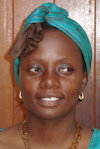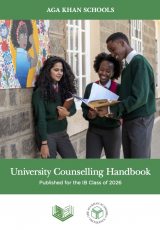Test article
Rechal Adam is one of these girls. She is confident, a good communicator and has taken a leading role in her school’s science club to make life better for those around her. Together with science club members and their teacher’s support, they have taken part in a community-initiated project which is taking science beyond the classroom.
On interviewing community members, Rechal and her friends found that many of the homes do not have toilets. When it rains, the surface water gets contaminated, and this is the same water that some people drink. Rechal and her friends found that cholera, diarrhea and dehydration are common sicknesses in their community. According to United Nations Sustainable Development Goal (SDG) 6, at least 1.8 billion people globally use a source of drinking water that is fecally contaminated, and each day nearly 1,000 children die due to preventable water and sanitation-related diarrhoeal diseases.





